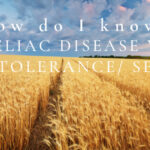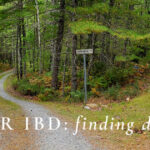Many people seek the help of a naturopathic doctor with a specialty in gastroenterology after being diagnosed with IBS by their Gastroenterologist. Tired of merely managing IBS symptoms, patients want to get to the bottom of their diagnosis, and find that GI doctors are limited in the care they are able to give. Naturopathic medicine offers solutions beyond a chronic diagnosis and helps alleviate and/ or eliminate the underlying causes of an illness.
The diagnostic criteria for Irritable Bowel Syndrome is defined by intermittent or constant abdominal pain (mild or severe) for at least three months, chronic constipation or diarrhea or both, and bowel changes. You might be faced with the following type of IBS:
- IBS C – IBS with constipation
- IBS D – IBS with diarrhea
- IBS M – IBS with mixed constipation and diarrhea
When IBS is suspected, a conventional approach would be to treat constipation or diarrhea with medication. For instance, a Gastroenterologist might offer Miralax as a solution for IBS C.
As a naturopathic doctor specializing in gastroenterology, I don’t want to just leave it at “the diagnostics”. I want to look at underlying causes. With IBS, there is often an underlying condition like SIBO or Fructose Malabsorption that is causing IBS discomfort.
We can do better than treating IBS as a chronic condition. Often by the time patients come to see me, they haven’t had stool tests or other testing for dietary and food sensitivities. Here’s how I approach these cases:
- Search and test for underlying cause
- Improve mucosal integrity
- Improve function
I prepare patients for and IBS diagnosis by studying their stool and monitoring lab work to find if there are any food allergies. I look at how digestion and absorption are working. Then I assess for leaky gut and SIBO if it looks likely. Labs can tell what the cause of IBS is and help us get to the root of the individual’s IBS symptoms.
Whether it’s mucosal lining, SIBO, or other functional issues like abdominal adhesions, or decreased motility, there are alternatives to managing symptoms with medication (even though medications are fine to use while we are figuring things out). Until we determine the underlying causes of an IBS diagnosis, there are a couple of things to consider:
First, is a dietary approach to alleviating discomfort. Try a regular meal pattern. It helps with the mechanisms in the GI tract that improve motility. Avoid large meals. Reduce fats and insoluble fiber, caffeine and gas producing foods like beans, brassicas, and, onions. Stay away from foods that contain lactose and gluten. I often suggest a Low FODMAP diet as a first step in ruling out SIBO or Fructose Malabsorption.
Second, is the increase in movement. Exercise helps in situations with constipation. If there is a lot of pain associated with your IBS, exercise can help mitigate pain as a result of the endorphins produced. Exercise is both functional and practical medicine in the case of IBS.
IBS is a diagnosis with symptoms that mirror other illnesses, so it can be hard to understand what exactly you are dealing with. As a naturopathic doctor with expertise in gastroenterology, I can help make sense of your symptoms and help you alleviate them.
Natural medicine can work very well to improve bowel function. Please contact Dr. Heather Buckle ND, FABNO if you have questions about integrative solutions for any gastrointestinal issues you may have. If you live in Washington state and would like to learn more about Dr. Buckle’s naturopathic approach to your wellness, please call (206) 643-2239 or CLICK HERE to schedule a consultation.





















No comments yet.